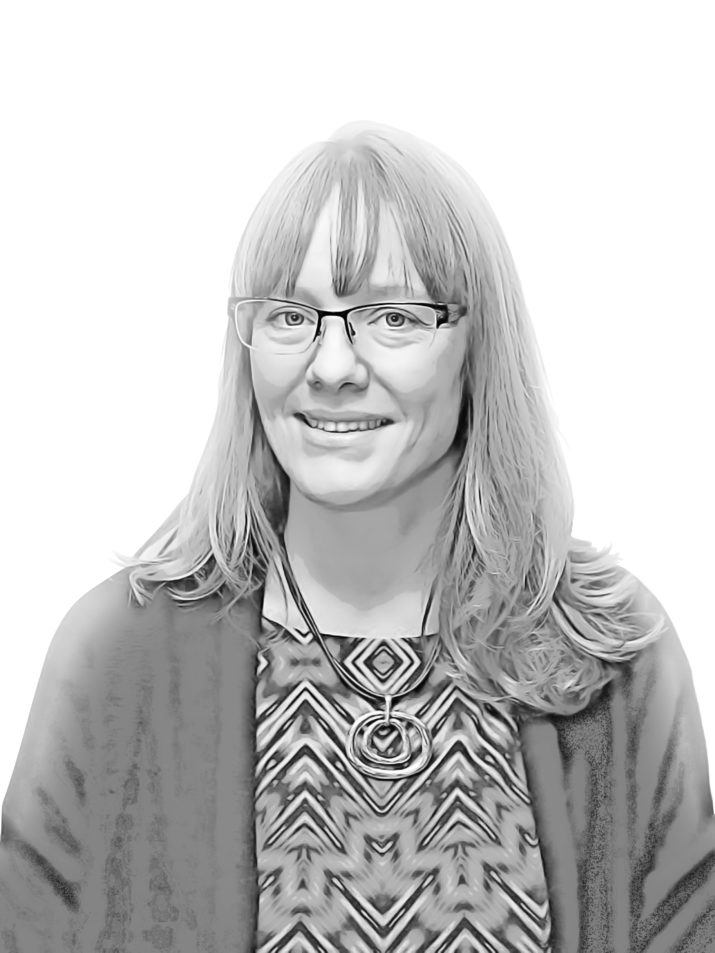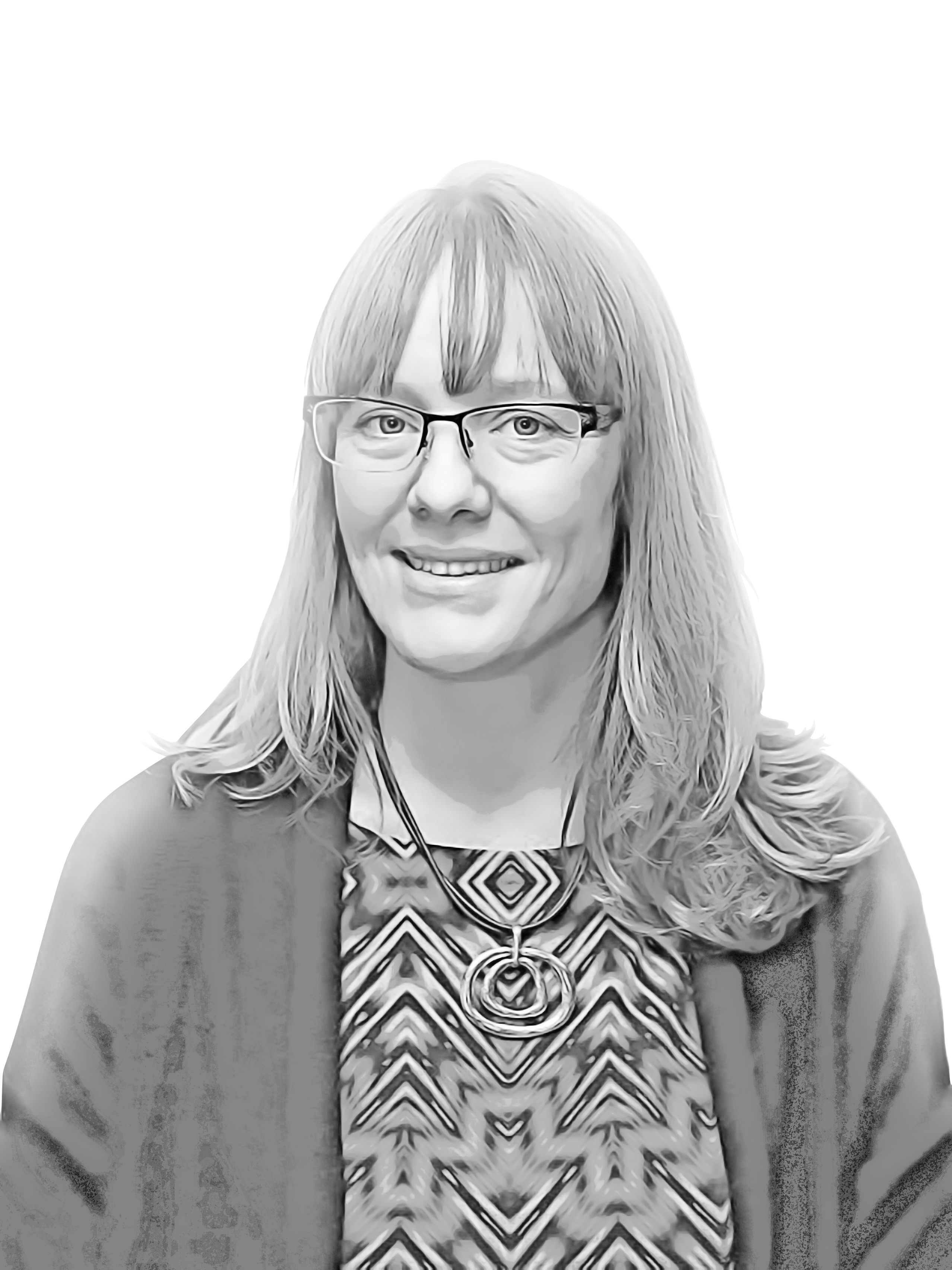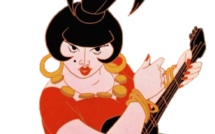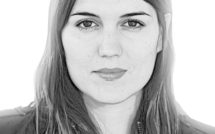

Translated from the Bulgarian by Angela Rodel
96th Street and Lexington Ave, the border between East Harlem and the Upper East Side, April 12, 2019, 8:01 in the morning
Is there school today, is there school today? a male voice shouts insistently from the other end of the subway station. As it turns out, the question isn’t addressed to anyone in particular; it just hangs in the air unanswered.
While I take out my MetroCard, the Voice ends up in front of my eleven-year-old daughter and looks her straight in the eye.
Yes, my daughter replies hesitantly, there is.
It’s important to go to school and to graduate high school, he takes up the conversation with enthusiasm, a conversation I watch for a few seconds as an outside observer before going over to them, which gives my daughter the courage to ask: What about college?
This question seems to reprogram the young man. No, there’s no point, he lashes out. I started, but then I dropped out and now I’ve only got debt left to show for it. It’s easy for you, it doesn’t matter where you’re from, what language you speak, what accent you have – you’re white. There’s no point in going to college, everything I’ve learned, I’ve learned from life. Do you want me to show you? Even though he doesn’t get an affirmative answer, he first lifts up his T-shirt to reveal a deep ribbed scar from a knife wound. Then he reaches into the right pocket of his jacket and takes out a long kitchen knife, which he immediately throws on the platform before emptying out his other pocket. This time he takes out a pair of scissors, which he also tosses on the ground. Finally, he takes off his jacket, seemingly rendering pointless his previous actions.
So you see that, I didn’t learn that in school. While he drops to the ground to demonstrate one-handed push-ups, showing off his athletic physique, I can’t take my eyes off the knife. I can sense my daughter’s anxiousness as well; she cowers slightly behind me, while I gradually step in front of her.
He takes no notice of all the people who have started filming him, I’m about to tell him, if only to divert his attention from us, but I decide against it. His tone of voice is friendly if high-strung, but ever since he pulled out the knife I’ve been on my guard, I’m careful of what I say and I’m counting the seconds until the train arrives – the fact that there are likely Lord knows how many hidden knives lurking in it does not matter.
And do you know what agnosticism is, and anarchism? He turns to Deyna as we get on the train, emphatically noting that he himself is an agnostic. I’ll explain it to her, I say, rushing to save the anxious Deyna from the need to answer. I guide her towards the seat farthest away as I continue to play the role of his main listener, until he finds another one: a young man reading a book entitled The Art of Thinking.
What are you reading? Instead of an answer, the man shoves the back cover of the book in our friend’s face. I could teach you that. Yeah, but I’ve already paid 12 dollars for the book, the young man jokingly replies.
At the next stop, the doors open for a new wave of passengers, who jostle our man a bit. Hey, why do only women apologize when they push and shove?
I glance at my daughter, who in the meantime has quietly started to cry. What’s wrong, honey? a woman dressed in a nurse’s uniform asks with concern. I explain to her that the young man who is now calling out the male half of humanity has a knife in the pocket of his jacket. Don’t worry, he just forgot to take his meds today.
Hardly have we stepped off the subway when Deyna bursts into a tirade of her own: that he is actually right about almost everything, that he is not only physically but also emotionally wounded.
Whether he’d taken a pill for fun or had failed to take his tranquilizer might have made a difference in some other story. Drugs manifest themselves both in their presence and their absence, as my other story with a knife will show, which is not a story about drugs, but a story about the Transition. And the Transition for me was above all music, and not just any music, but electronic music. And like it says in that epic tribal house song by Danny Tenaglia, music is the answer.
Wednesday, 1997, John Lennon’s Wall, the internal border between West and East in Sofia, Bulgaria
On a Wednesday like any other, twenty-five years earlier, at around 10 PM in Sofia, another male voice suddenly springs out of the darkness and asks in an exceptionally genteel, almost pathetic way, two girls walking down Main Street whether they could spare some change, as he was very hungry. Adriana and I are on our way to the electronic dance music (EDM) club. Adriana has just asked me whether I wasn’t scared to walk around alone late at night. C’mon, it’s as bright as day at the Main Street, I reassure her. I never missed a Wednesday, but my boyfriend didn’t feel like going that particular time, so I invited Adriana. Around John Lennon’s Wall there is a strange hush and darkness – and it was right there that the Voice surprises us.
Uh, no, I mumble hesitantly, picking up my pace. Gimme your money! A new voice and the quick flash of a switchblade knife. It’s only now that I really notice the tag-along, who has grabbed Adriana under the arm, forcing us to stop. I don’t have a wallet. I start rummaging through my pockets, trying not to take out all my money. But what if he searches me? my inner voice says. Reluctantly, I eventually pull out everything, and after he receives my very last 500-lev bill adorned with the face of the composer Dobri Hristov, our new friend busies himself with Adriana’s wallet, rifling through all the pockets except one, in which Adriana keeps a 50-dollar bill (her mother worked abroad).
The Voice retunes to its original frequency and offers to escort us, since we are girls on our own, and there are all sorts of stray dogs and gangster-types lurking. We continue on our way to the club, and as we near Bookmarket Square, I remember the 24-hour sandwich shop on the corner, where two friends from the already defunct band Lacrima Christi and from the still-unknown band The Animationists work, so I suggest that he give us back our money and we all go get a bite to eat together, our treat. I’m not hungry in that way. From the brief story of his life that follows, we learn that his parents have thrown him out with a penny to his name and he has to go to the Krasna Polyana neighborhood ASAP to buy his heroin. Yet instead of hurrying to meet his dealer, our involuntarily abstinent acquaintance gradually slips into the role of our bodyguard. At the next intersection, where some gangster guys wolf-whistle at us from their cars, he decides to escort us to Astoria – the name of the club that temporarily hosted EDM nights. (At that same intersection, I’ve also seen high-ranking members of the Bulgarian Orthodox clergy with gold chains and fancy cars, and the two memories visually intertwine.) Near the French Cultural Institute, I meet a potential savior, one of the well-known electronic DJs. I stop to say “hi” to him, but almost instantly I decide not to drag him into this; after all, our friend has a knife and is still stuck fast to Adriana. So I tell the DJ “bye” and go back to my two companions. When we get to the club, our gentleman asks us how much the entry costs, then digs around in his pocket and pulls out the right amount, plus that much again for each of us for a drink. Good God Almighty! I feel truly grateful. As we part ways, he takes down Adriana’s number and promises to pay us back the rest of the money someday. It doesn’t matter at all that this will never happen; the important thing is that he believes it and he sounds completely sincere. I believe that he believes it. Maybe he doesn’t need a fix; maybe he wants to do a good deed.
Elated by this unexpected denouement, I sink into the club, where it is no problem at all to forget about this incident, because the club is an experience all its own.
As the Serbian graffiti from that time put it, we spent our best days at night.
I’m telling this story not because I’m nostalgic for my erstwhile nightlife, but because it was the epitome of the ’90s, including almost everything characterizing that period: euphoria, uncertainty, free will, stray dogs, which in the early 90s selectively barked only at taxis and western cars, which primarily drove gangsters around before they got out of these cars and went into the EDM clubs and ruined the scene irreparably. The car was the prosthesis of the gangsteroid; he rarely stepped out of it – only to kick some ass, or show off his gold chains, or ostentatiously eat KFC. In all seriousness, in the first half of the 90s, eating at American fast-food chains was prestigious. I know, because I worked at one for seven months so I could buy my first stereo system, and alas, I made better money than my parents. And I needed a stereo, because I didn’t listen only to electronic music. In fact, electronic music was mostly for dancing, I was almost in ecstatic agreement with Ezra Pound that music begins to atrophy when it departs too far from the dance.
We never missed that weekly EDM night – first at the Balloon, Excalibur, Spartacus, then Lipstick, Indigo, and other clubs in Sofia, which over the years took turns as the basic scene for electronic music in its various forms. Electronica gave expression to our free will, our desire to be part of Europe and the world, to our euphoria at the changes taking place. An emanation of a recycled beginning, which would have been analogous to the change in the context and function of the Mausoleum, and not of its destruction.
Electronic music most often swept you away into a non-verbal narrative that you were free to finish as you chose, with a sense of eternity commensurate with the global and the universal –categories always not subject to doubt, an eternity existing alongside this fleeting moment. The non-transitional-ness that gushes from that music and the cyclical rhythm were in direct contradiction with the idea of a transition, but who’d have thought it?
After so much ideology and propaganda, for some time at least electronica was a conductor for an irresistible abstract force, poured onto a white sheet of paper in the language of pure desires, or at least purely new desires, in anticipation of a Future that we would build ourselves.
Electronic music wasn’t an escape, but a way of imagining things anew.
During those weekly EDM nights, I more or less spent a full workday on the dance floor, until public transportation started running in the morning, almost without saying a word to anyone, and without the interference of alcohol or drugs. Music was my only means of transportation to the antipodes of consciousness. I assume this is why the commercially unviable EDM parties were primarily held on weekdays, because they didn’t make money. We paid only for the ecstasy of the feeling of freedom, no more, no less. An honest deal, a solidarity economics. And it is no coincidence that sometime around then, in broad daylight, a Bulgarian poet had taken unsold copies of her poetry book from the publisher and sold them in front of the National Library, arranged in an exquisite spiral. In that crack between the two systems, we were in the grip of the illusion that we had taken things into our own hands!
From my allowance I could set aside money for one cassette and one book a month, and once I had decided to treat myself to an organized trip to Budapest for a concert of Nick Cave and the Bad Seeds without my parents knowing, I had to go back to my hometown for a few weeks under the pretext that I needed to study, but everything worked out fair and square, because if I had been able to afford a drink – thanks to our “bodyguard” – it would have been unnecessary: music was a more than sufficient opiate, I was in noble company, and the feeling of freedom while dancing among like-minded people was inimitable. We danced through the Transition.
We danced, while the genocide was happening in Rwanda, the attacks in Belfast, the bombings of Belgrade. Even when tragedy struck our western neighbor, I called a Serbian friend who refused to take cover in a bomb shelter to hear about it from him first-hand, while the handful of people who had staked out a tent city in front of Parliament to protest the NATO decision looked like aliens. The world didn’t care about us and we didn’t care about it.
We danced through the Videnov financial Crisis as well, the protests, the harsh hyperinflation that bled our parents dry. Money that had been saved over years of honest, painstaking labor dissolved into nothing overnight. We soaked in the worries and anxieties of our parents, but we were spared fundamental anguish both then and earlier, when due to the fact that we were still under age, no one of my generation was forced to write reports for the secret police, though many of us wrote real letters, mostly to friends doing their mandatory army service. We were the ideal age to meet the Transition, with a brief yet sufficient memory of communism, formed at the age of reason. Life was ahead of us, and electronic music fed that illusion: the illusion that we could change something, that the individual mattered.
The fusion between personal and collective experiences spilled out from the dance floor and into the streets. On the barricades during the protests of ’97 to turn down a socialist government, we discovered a charming solidarity – semi-despairing, semi-euphoric adults brought food to the protesting students, whom they hoped would achieve what they had not been able to. Then, for perhaps the first and last time, we were resigned to our fate, determined to bring about change, convinced that our collective Voice was decisive. But even then, a vision for the future was lacking. The protest’s script was dominated by the usual slogans red grannies, red scum, and short-sighted demands for early elections, but what then? This mysterious gender-specific grammar of the protest lacked not only long-term vision, but also the shock aesthetics of the protests in Belgrade at that time – except, perhaps, the anemic carnivalesque spirit that was precisely a function of the newly created rave culture, but nothing that could break the spell of or conquer history.
Music and dance were the best form of collectively experiencing the individual euphoria of the changes. Our ecstatic guzzling of music that flowed through the wide-open informational channels marked only the beginning of the Transition.
Unlike alternative rock, electronic music was a total break with the previous era, something which daily life wasn’t anywhere near as good at. It was a free zone where various social types and roles coexisted without getting in one another’s way – before that zone was poached, usually by the descendants of those who’d been trying to sell us on the Bright Future. The old nomenklatura and the new gangsters immediately tried to get their hands on anything happening. The guys who asked with a friendly smile what you were taking to make you dance tirelessly for hours on end gradually gave way to those who insistently offered to buy you drinks, while electronic music was forced to leave the club scene and find independent spaces; once we even christened the opening of a metro station with a rave party.
On the streets, new construction was going full-steam ahead, and if at the beginning of the Transition you could hear, wafting down from the scaffolding, a folksong sung or whistled out to some passing woman, gradually, without needing to retreat in the face of political correctness, singing and flirtatious tunes from construction sites were replaced by car horns and mediocre cat-calls.
August 11, 1999, Black Sea, Sunmoon Fest, one of the last truly mind-blowing electronica parties for me. To this very day, I still have a clear acoustic image of the Booklyner Zemi17 song that blared out after the silence accompanying the three minutes of total solar eclipse.
The end of the world did not come with the eclipse, but for me personally, that marked the symbolic end of an entire era.
August 21-27, 1999, the destruction of the Mausoleum did not put an end to the communist era, but to the hope for change.
December 31, 1999, with the end of the millennium, neither the end of the world, nor the end of the Transition was in sight. A stillborn Transition but living through it was wonderful.
Still, I should note that my personal transition from one age to another, from one city to another, and the historical Transition to democracy overlapped in the ‘90s. Even back then, I felt a smug satisfaction that as a generation with a double transition, we are enviable for having the opportunity to live out this dance between socialism and democracy. But now, though I know the process was unsuccessful, I am even more convinced that the ‘90s were the most exciting time from the fall of the Iron Curtain until now.
Music lured us into a journey, and still, thirty years later, we are waiting for some Siri or other to pronounce her hallowed You have arrived at your destination.
I haven’t come across that young man from the John Lennon’s Wall in the shiny new Sofia metro, I haven’t heard him imposing his views on the fellow passengers patiently hearing him out, and I wonder whether he has crossed the ocean or whether he has crossed some other boundary.
But I wouldn’t want to have been born a year earlier or a year later.
January 8, 1974, Yambol
Melanie Evans graduated with a BA in Modern Languages and Cultures at Pace University. She walks dogs, and writes about the international cultural scene in New York from her apartment in Harlem. Her interviews and articles have appeared in the Ninth Letter, Reading in Translation, Vagabond, and other publications.
Angela Rodel is a literary translator from Bulgarian into English. Her translations have appeared in MacSweeney’s, Two Lines, Ploughshares, Words Without Borders, and elsewhere. She has received NEA and PEN translation grants; seven novels in her translation have been published in the US and UK. Her translation of Georgi Gospodinov’s Physics of Sorrow won the 2016 AATSEEL Prize for Literary Translation, and was shortlisted for the 2016 PEN Translation Prize and ALTA’s 2016 National Translation Award. Since 2015 she has served as the executive director of the Bulgarian-American Fulbright Commission.
Published on January 16, 2020.




